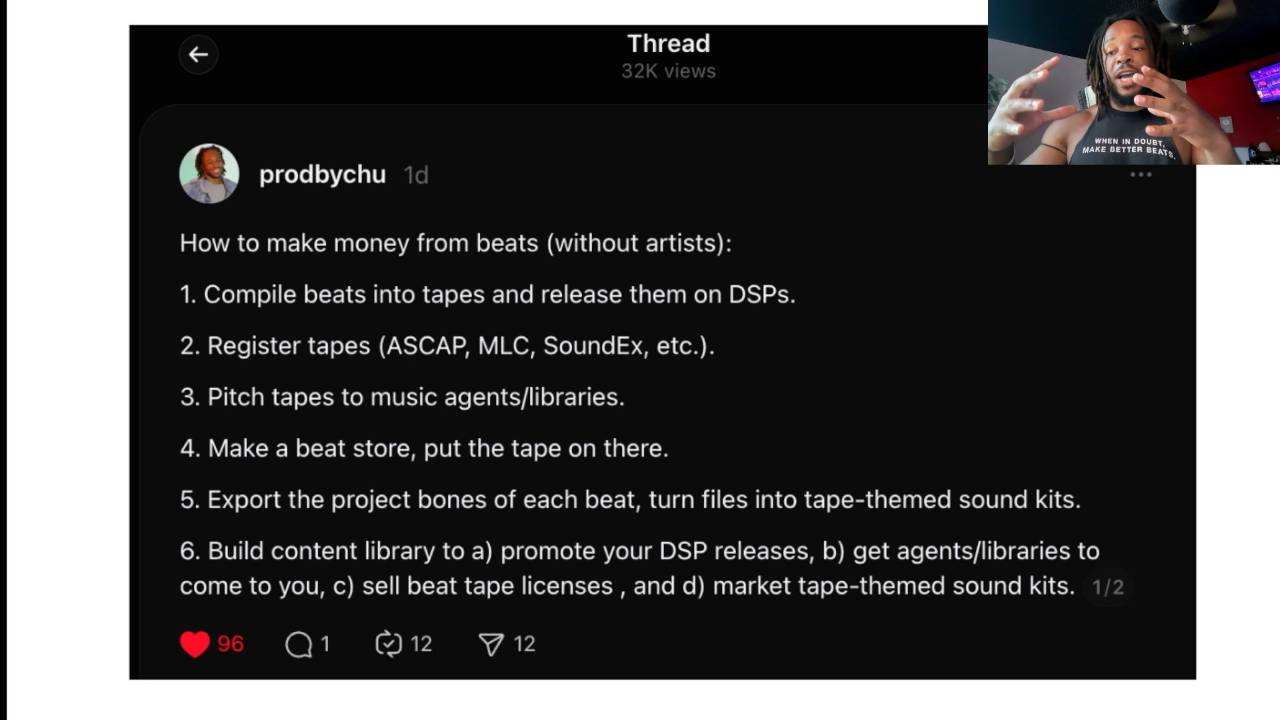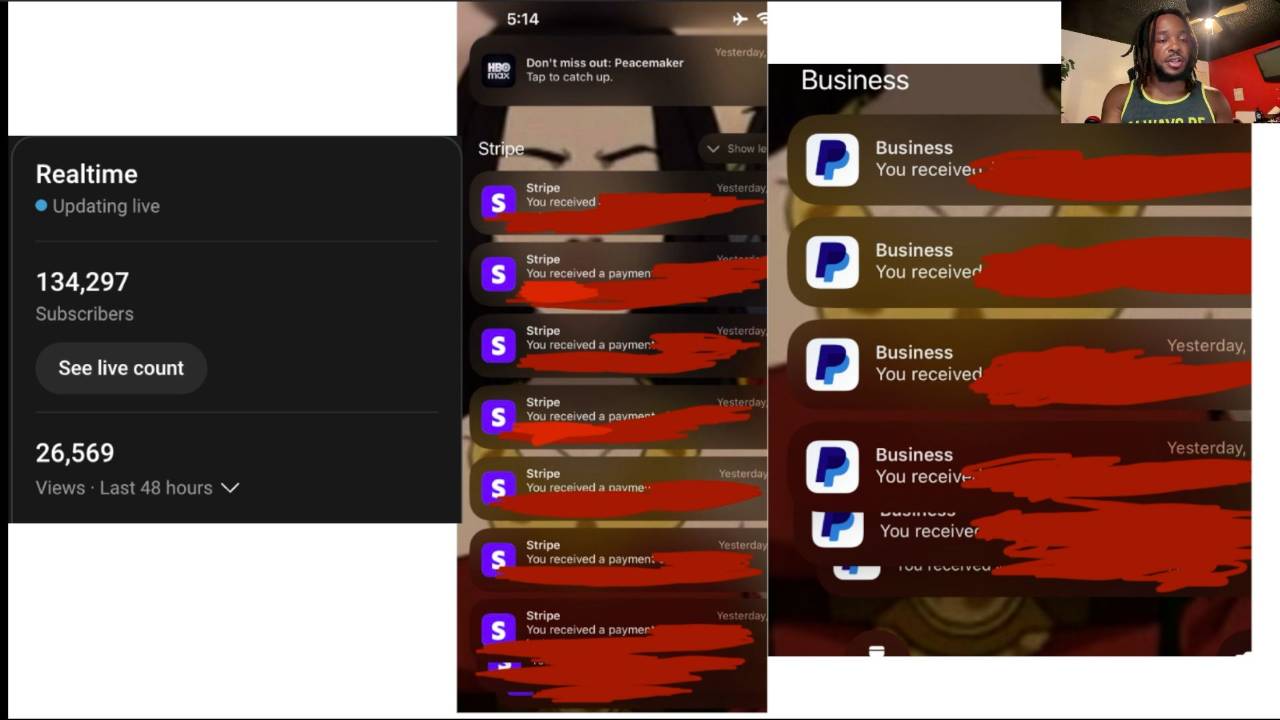
0. Your last saved checkpoint.
I made this post on Threads the other day.
And it inspired me to write this letter (which you can watch on YouTube instead).
I’ve spent 5 figures and over 5 years testing the statement above.
Today I want to show you the simplest ways to achieve the clarity and balance you want WITHOUT learning complicated concepts or paying for expensive VSTs.
And even if you think you’re not overthinking your mix, I’ll show you the ONE MISTAKE that 99% of producers/engineers/DIY artists make to ruin their mixes before they even start…
Chapter 1: Those dumb robots took our jobs!
Before we get ahead of ourselves, I think the best place to begin is with the issue that makes mixing hard for us.
Someone called Chelsea made an interesting suggestion 👇
I never considered asking ChatGPT for mixing advice, so I tried it… 🤷♂️
I found the EQ recommendations to be decent for a few songs I analyzed.
But the video essay shows many demonstrations of it being super inaccurate, so it’s something you’ve got to take with a grain of salt.
When I tested beats, I found the reference capabilities to be fascinating, (though they don’t seem to account for taste).
I think AI sort of forces the consumer AND the producer to ask themselves a lot about how we’ll think about mixing in the future 🤔.
“Are you gonna believe computational analysis from AI [based on synthesis from random human sources] over the experimentally verified and practically showed precepts of talented musicians developed over years of refining their taste?”
“Is a free AI just telling you something more accurate that tonal balance control, or a loudness meter (things that are provably accurate that you can learn to read on your own)?”
To be honest…
My head hurts just thinking about OpenAI’s notes.
And I genuinely believe it didn’t make suggestions that will improve my music (but, that’s just me, a professional, making a professional judgement about his professional work).
Even though AI can be an interesting tool to use in mixing, I think it can complicate things for more than if you just learn the fundamental basics.
As an artist, do your best to avoid your creative tendency (read: curse) to complicate things.
Taming it through disciplined fundamentals works better than trying to find secrets or cheat codes.
Even if ChatGPT gave advice we could verify as accurate, it seems to communicate it in ways that confuse things further (perhaps we can do another essay where we test if AI can alter its recommendations based on our available tools and current skill level).
My advice: Avoid the top down approach of starting with the most complicated concepts & tools.
While AI is cool to mess around with, your music itself will get better if you just learn the fundamentals that have been here since the beginning of time.
It’s kind of like how OpenAI could give you a bunch of fitness advice about how to lose weight, right…?
But no matter what it says, the BEST answer is always;
-
Fewer calories in.
-
Better quality of calories.
-
Moderate amounts of exercise.
-
Decent sleep.
-
Blah, blah blah… 🥱
The boring stuff, right?
I think it’s the same with mixing 👇
🔑 The simple boring stuff ALWAYS gets you the best results.
🧠 Clean your low-end and balance the mids with solid EQ and small (VERY SMALL) amounts of compression here and there (AS NEEDED). The all caps are a reminder for me, not you 😔.
This results in a clean, powerful mix that doesn’t fatigue the listener.
That’s ALL you need!
Btw - Check out the Band4Band Mixer Preset Kit!
Chapter 2: Triple Threat.
But what are these simple, boring precepts that will make our mixes so much better if we just use them consistently?
My mixing mentor taught me something really cool —> we only hear 2 or 3 things going on in the track at a time.
Then he gave me a concept to help me ensure the most important elements of my mix are always present.
This will work for many genres:
-
Pop,
-
Pop rock,
-
Metal,
-
Hip hop, and
-
R&B
Chapter 3: The part noobs will 100% ignore
But there’s something that affects your mix more than anything else we’ve talked about.
Someone called Rory also left an interesting comment 👇
He’s right for 3 reasons;
-
The more stuff you add, the more stuff you have to mix.
-
The more stuff you add, the more you distract the listener from what’s most important.
-
At a point, the more you add, the less creative your work actually becomes.
Rick Rubin talks a lot about why less is more in his book, “The Creative Act” (recommended read).
Specifically, in the chapter called “The Craft Phase” 👇

Here are a few examples of how I use this concept in my music:
-
There’s usually only 1 to 2 melody layers going at a time.
-
Simple drums (and few layers).
-
Things keep dropping out and coming in;
-
Not so it stays interesting, but so it doesn’t get cluttered.
-
It being interesting is a byproduct of me trying to make it good for the listener.
-
Fin. Fast Travel To Next Destination:
Understanding structuring will improve your mix.
I noticed that when I learned more about how to arrange tracks.
Artists complimented my mixing more even though I had changed nothing about it.
If you want to learn about how I arrange beats for my major placements and viral beats, check out this arrangement guide.
Get Sound Kits 👇






